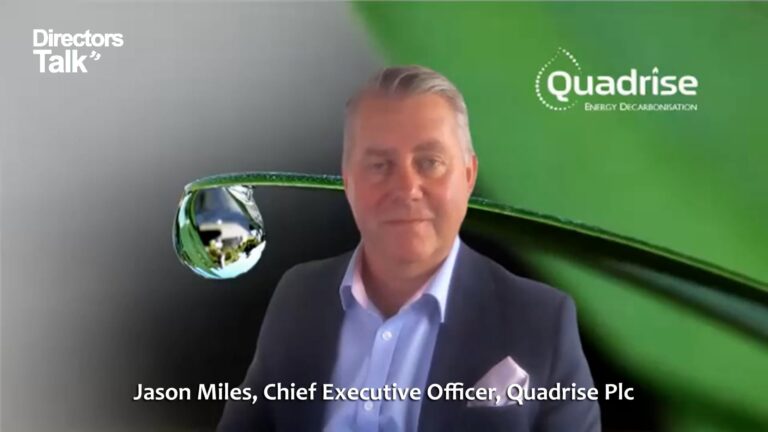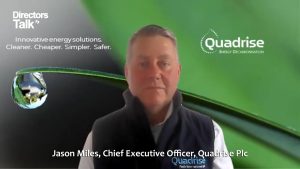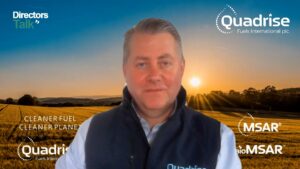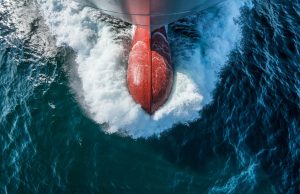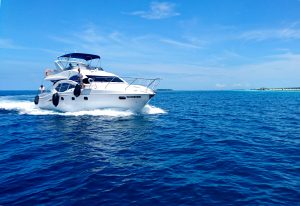Quadrise plc (LON:QED) is an energy technology provider whose solutions enable production of cheaper, cleaner, simpler and safer alternatives to fuel oil and biofuels, proven in real world applications.
Quadrise technologies produce transition fuels called MSAR® (pronounced ‘em-sar’) and bioMSAR™, which allow clients in the shipping, utilities and industrial sectors to reduce carbon emissions whilst also saving costs.

TECHNOLOGY
MSAR® technology produces a low viscosity oil-in-water emulsified synthetic fuel oil or biofuel. It is a proprietary technology to mix heavy residual oils with small amounts of specialist chemicals and water to a bespoke formulation. The resulting MSAR® emulsion contains approximately 30% water and less than 1% chemicals. The emulsion is a low viscosity liquid at room temperature, which makes it easier to handle and reduces the heating costs for storing, transportation and use in comparison to heavy fuel oil (HFO).

BENEFITS
Both MSAR® and bioMSAR™ are water-based fuels and biofuels respectively. The superfine dispersion of oil-soluble droplets (5-10 microns) in the water phase is much smaller than atomised HFO droplets (100 microns). This means that MSAR® and bioMSAR™ have a far greater surface area, enabling complete combustion. All of the fuel is converted to energy. The inherent water within MSAR® and bioMSAR™ also reduces the temperature of combustion, which reduces NOx emissions by up to 45%*, with no visible black soot.
MSAR® delivers up to 9%* reduction in carbon dioxide, and bioMSAR™ offers over 20% reduction in emissions compared to HFO. This is comparable with LNG use, but without the risk of methane slip, which is 21 times worse than CO2 as a greenhouse gas.



